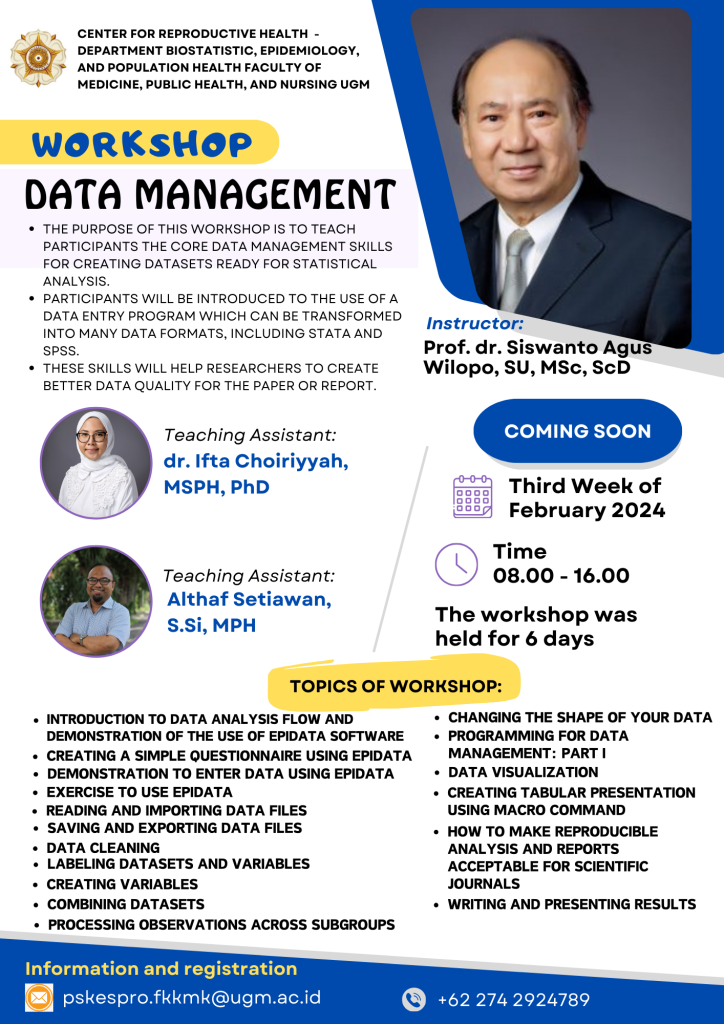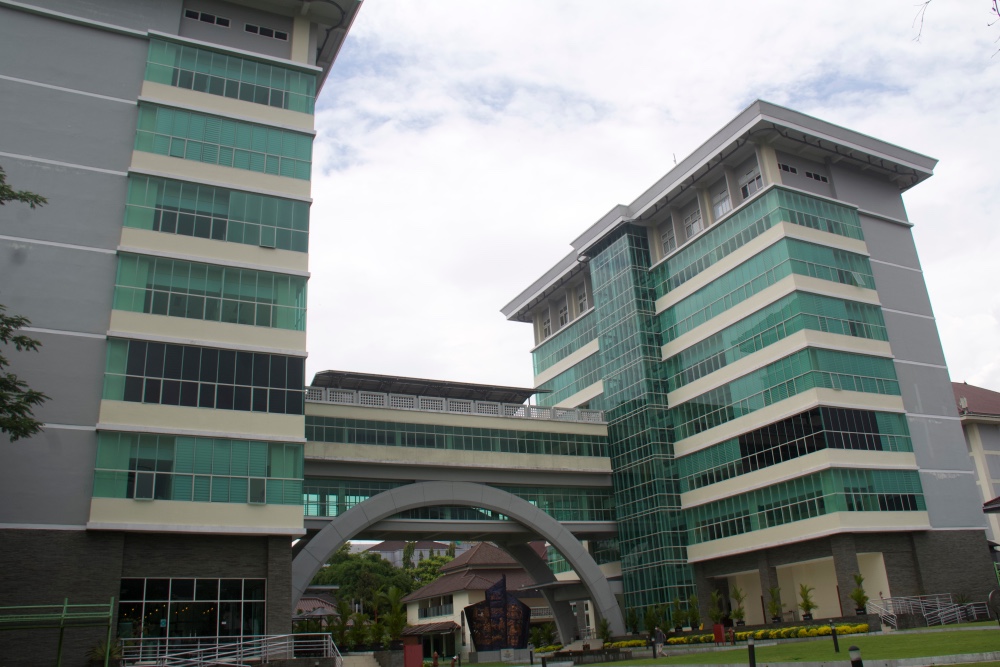Center for Reproductive Health’s 2024 Annual Meeting Marks Advances in Research and Collaboration
Bandung, January 16-19, 2024 – The annual meeting of the Center for Reproductive Health (CRH) convened experts to discuss the latest updates in reproductive and population health research. The gathering served as a platform for experts to strategize impactful research plans and promote collaborative initiatives inline with the Center’s vision and mission to contribute to the health of the population nationally and globally.
The history of the Center for Reproductive Health, formerly known as the Community Health and Nutrition Research Laboratory (CHN-RL), began with the establishment of a longitudinal surveillance system in demography and community health in 1994. This system has provided a solid foundation for evidence-based decision-making in reproductive health programs. Subsequently, the center engaged in applied research and provided training for healthcare professionals to analyze research results, forming the basis for planning programs, also known as the Plan of Action (POA). The center officially adopted the name Center for Reproductive Health in 2007.
The meeting commenced with a discussion of the Center’s success indicators as assigned by the university and included a comprehensive review of its achievements over the past year. These extensive accomplishments will also be publicized with the launch of the Center for Reproductive Health’s Annual Report. The meeting also formalized the use of the Center’s website and gathered inputs from staff.
Key highlights of the meeting was the presentation on updates regarding the upcoming the Center’s 30thanniversary and ICIFPRH. The International Conference on International Family Planning and Reproductive Health (ICIFPRH), scheduled for its third iteration in 2025. Discussions also revolved around the potential extension of research and collaborative efforts to have maximum impact on both national and global scales. Through the discussions, the Center for Reproductive Health continues its commitment to leverage its impact. This year and in the future will be the right momentum to extends the Center’s focus not only in the Maternal-Child Health & Reproductive Health but also to the realm of Population Health.
The center’s commitment to collaboration was evident as it emphasized partnerships with prestigious institutions such as the World Bank, Johns Hopkins University (JHU), SAGE, Umea University – Sweden, UCLA, and others. Collaborative efforts with the INDEPTH-Network and the World Health Organization (WHO) were also acknowledged, showcasing a global approach to addressing reproductive and population health challenges.
As the meeting concluded, attendees expressed their consensus for the progress made in reproductive health research and its positive impact on communities globally. The Center for Reproductive Health continues to play a vital role in shaping the future of reproductive health initiatives, fostering collaboration, and advancing the health and well-being of populations around the world.
Reported by: dr. Bianda Dwida Pramudita, M.Sc.





